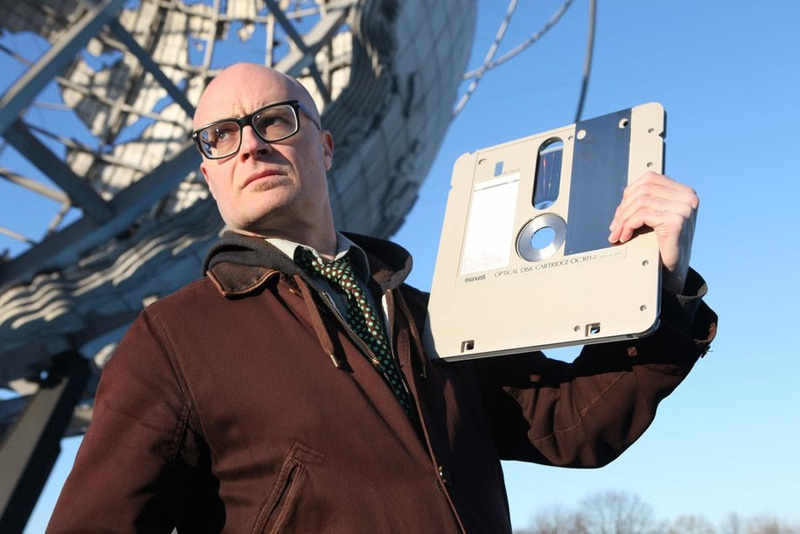Nerdcore pioneer MC Frontalot on his new LP, breaking up with the Internet

MC Frontalot. Courtesy: Jason Scott.
Nerdcore hip-hop pioneer MC Frontalot‘s new album, Net Split or, the Fathomless Heartbreak of Online Itself, is a breakup album about the Internet.
“I mean, don’t worry,” the artist, born Damian Hess, clarifies. “It’s not like I’m gonna stop using the Internet.”
Just like breakup songs usually aren’t about the split itself as much as the changes and emotions that led to it, Net Split isn’t about moving to a cave in the wilderness to escape modern communication. Instead it’s about mourning the lost promise of what the Internet could have been and what it was supposed to be.
“I was working on my sixth album [the fairy-tale-based Question Bedtime] in 2014 and I got most of the way to a concept album,” he says. “I still wanted to do a concept album so I started to look to my world, what was happening and where it was going.”
At the time what was happening was the Gamergate controversy, a targeted harassment campaign focused on women in the video game industry. It was, at the time, the clearest manifestation of the hostile, toxic direction Internet culture had taken, as well as a clear signal that rather than going away it was only building.
“I came up with “Never Read the Comments” and it sort of took off from there,” he says. “It took forever to come together, but the Internet got worse in those last five years so I guess it only got more timely.”
It wasn’t always this way, of course. In the early 2000s the Internet launched Frontalot’s career with venues like the songwriting competition Song Fight and web comic Penny Arcade, both early supporters of his work who introduced their fanbase by naming him Rapper Laureate.
Once he took hold within nerd culture, the mainstream media coverage followed. Nerd culture was still on the outskirts of pop culture as a whole. Unlike now, when superhero movies are ubiquitous cultural touchstones, the world was shocked when Sam Raimi’s “Spider-Man” became a hit. Likewise, while nerdy themes weren’t totally foreign to hip-hop—Del the Funky Homosapien released Deltron 3030, a sci-fi concept album, after all—the ideas of nerds rapping on the Internet was a noteworthy novelty.
“It was very easy to get press attention for nerdcore back then because it was very easy for a reporter to get 800 words out of nerds rapping,” he says. “Now it couldn’t be more common. Nerd culture is just culture, so it’s obvious. For someone just finding it for the first time, it’s easier to ignore than ever before.”
At the same time nerdy entertainment was growing and spreading, nerds’ method of choice for spreading that entertainment—the Internet—was also taking hold in the mainstream. But rather than producing Game of Thrones and The Avengers, it came up with conspiracy theories and hate groups. That boundless, frictionless communication that the late 20th century thought would bring the world together began to viciously rip it apart.
“You can focus hatred and harassment with a hashtag,” Frontalot says. “There was no way to see that coming on [early online forum system system] Usenet.”
So he and the Internet are breaking up, figuratively if not literally. He’s not leaving it—if that were even feasible in the modern world—but he is done with it. Not just because of the dashed hopes, but because of the lack of options to fix it.
“I don’t know what the solution is,” he says. “None of the obvious ones seem viable. For instance, people need anonymity for all sort of noble pursuits so it’s not as easy as just taking that away. People are trying to let algorithms moderate, but we’re already ceding so much power to robots and code and we don’t know where that will take us.”
He doesn’t have the answers, but at least he can explore the problem.
“I’m just doing what I can do and rapping about it; finding the lighter side of abject misery,” he says.
Follow editor Daniel J. Willis at Twitter.com/BayAreaData.
